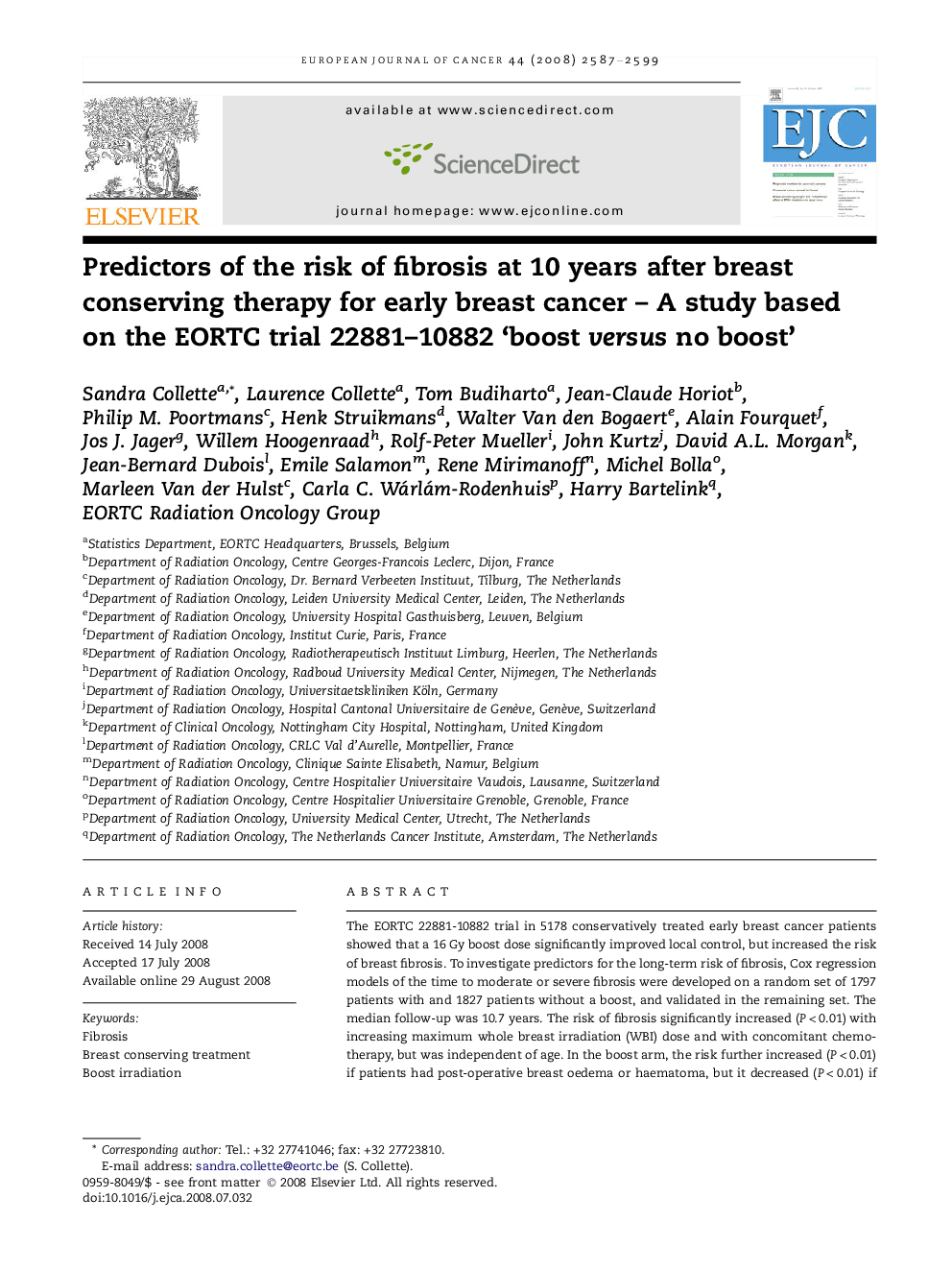| Article ID | Journal | Published Year | Pages | File Type |
|---|---|---|---|---|
| 2123948 | European Journal of Cancer | 2008 | 13 Pages |
The EORTC 22881-10882 trial in 5178 conservatively treated early breast cancer patients showed that a 16 Gy boost dose significantly improved local control, but increased the risk of breast fibrosis. To investigate predictors for the long-term risk of fibrosis, Cox regression models of the time to moderate or severe fibrosis were developed on a random set of 1797 patients with and 1827 patients without a boost, and validated in the remaining set. The median follow-up was 10.7 years. The risk of fibrosis significantly increased (P < 0.01) with increasing maximum whole breast irradiation (WBI) dose and with concomitant chemotherapy, but was independent of age. In the boost arm, the risk further increased (P < 0.01) if patients had post-operative breast oedema or haematoma, but it decreased (P < 0.01) if WBI was given with >6 MV photons. The c-index was around 0.62. Nomograms with these factors are proposed to forecast the long-term risk of moderate or severe fibrosis.
